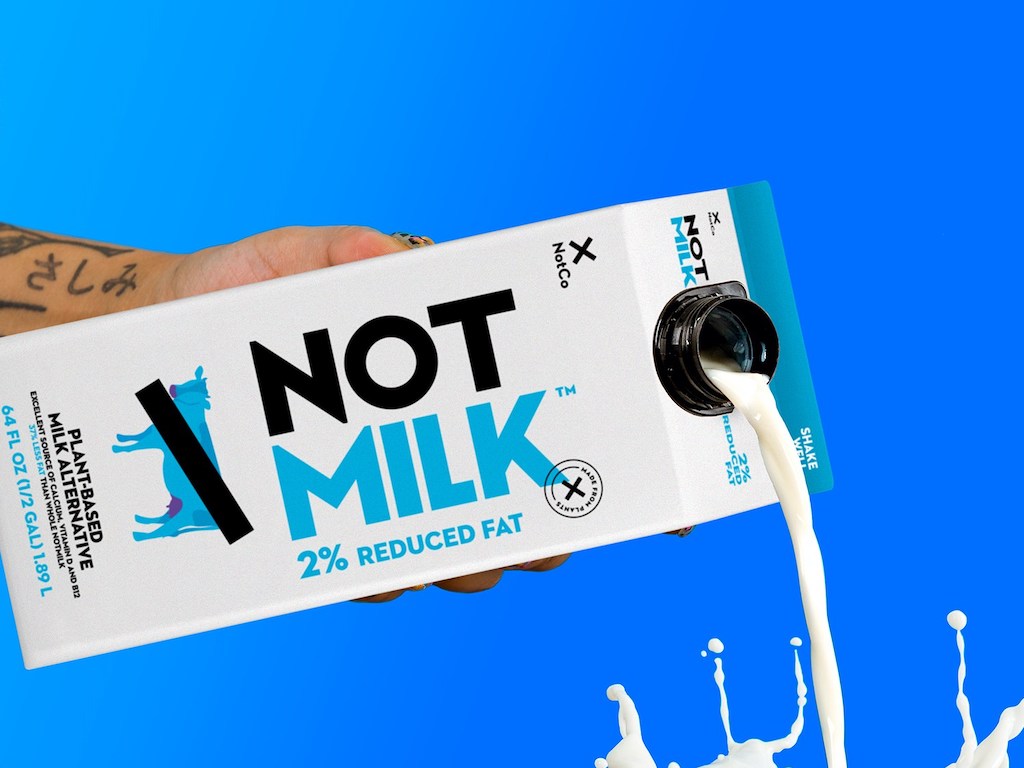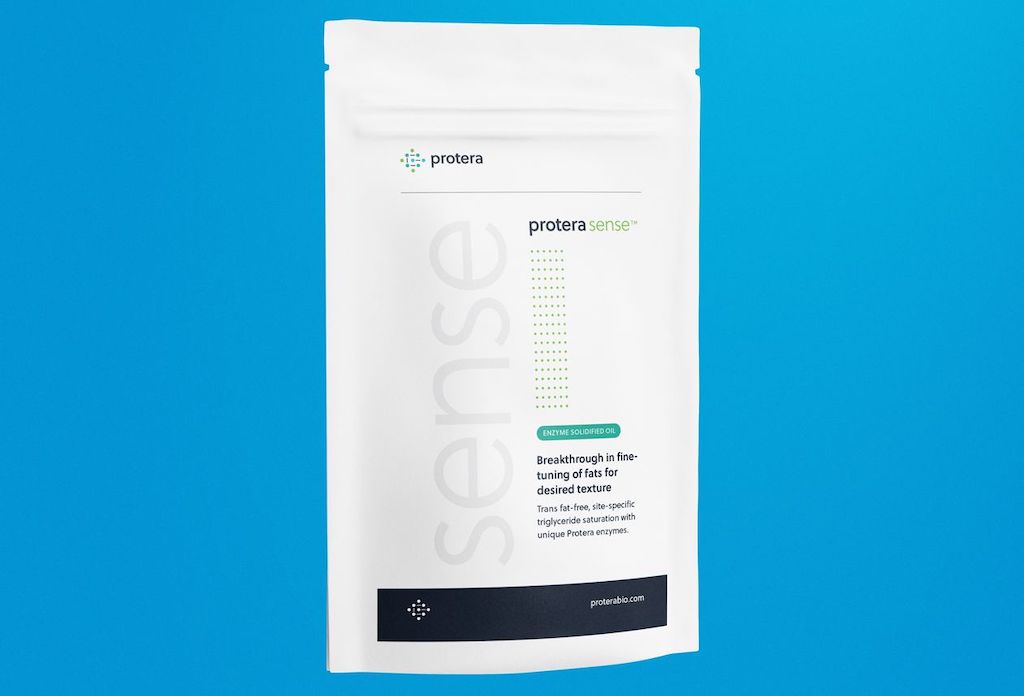Chilean Companies Lead The Next Big Wave Of Startups Cleaning Up Our Food Options With AI And Plants
6 Mins Read
Anyone whose recently been on the streets of Santiago, Chile, might have noticed posters plastered around the city that read, “If we are what we eat . . . That’s not what I want to be.”
The message came courtesy of The Live Green Co., a Santiago-based food-tech startup that uses an AI-powered recommendations engine to identify and manufacture plant-based alternatives to not just meat and dairy but also the synthetic ingredients many of our food items are riddled with.
As The Live Green Co.’s “consciousness campaign” underscored, there’s an increasingly urgent need to leverage plants to find alternative ingredients for our food system, both for environmental and health reasons.
To do that at speed and scale, companies are now turning to AI technologies that analyze flavor combinations, amino acid sequences, protein structures, and other elements faster and more precisely than any human is capable of doing.
Three of the most notable companies in this area all happen to come not from San Francisco or Singapore or New York City, but from Chile.

Ancient knowledge meets modern tech
The Live Green Co. made headlines at the start of this year for unveiling a plant-based ice cream that took a mere 90 days to develop, thanks in large part to the company’s AI tech. The product is made from natural ingredients like bananas, avocados, and sunflower seeds, a combination hit upon by the company’s AI recommendation engine Charaka.
Charaka essentially merges traditional Indian plant science with modern technology. The system catalogs the world’s knowledge of functional benefits of native plants then analyzes patterns in these plants’ properties to find combinations that could be used to replace animal proteins and synthetic additives. Hence bananas, avocados, and sunflower seeds working together to create ice cream.
There are more than 15,000 plant profiles currently in Charaka along with roughly half a million data points. That, however, is just the start.
Co-founder Priyanka Srinivas said earlier this year that there are more than 450,000 available plant species, 10 million compounds, and more than one billion data points that can be mapped to find alternative ways of creating the same foods we buy at the grocery store.
The big-picture goal is to help big CPG companies improve the ingredients in their foods. While the company sells plant-based burgers and pancake and drink mixes in Chile, The Live Green Co.’s overarching mission is really more about selling technology than it is plant-based analogues of foods that already exist.

Not your average plant-based milk
Recently valued at $1.5 billion, NotCo falls into the “unicorn” category, a status it achieved this year after a $225 million Series D round led by Tiger Global and world-renowned athletes Lewis Hamilton and Roger Federer.
The company is best known at this point for its dairy-free milk, which is in stores in Latin America and in the US. NotCo also makes animal-free mayonnaise, burgers, and ice cream products, currently only available in Latin America. CEO Matias Muchnick tells Green Queen the company is aiming to move into nine different categories eventually.
NotCo’s biggest differentiator, though, is its patented AI platform “Giuseppe” that uses machine learning algorithms to identify plant-based replacements for animal proteins. For example, drinkers of NotCo’s NotMilk products may notice items like cabbage and pineapple juice on the ingredients list.
Upon being asked to match the recipe of an animal-based product, Giuseppe analyzes the product (e.g., milk) at the molecular level to determine which plant combinations could best replicate the real thing. NotCo chefs then make the different recipes Giuseppe provides to determine the best fit.
“We decided to create this algorithm that is basically allowing us to predict which combination of ingredients should result in the same sensory experience as a target product,” says Muchnick. “The idea is to generate understanding around the underlying patterns [and] retrieving them when it comes to components important human perception of taste and smell.”
Muchnick has long said reaching the mass market is key, both for his company and for alternative proteins and ingredients in general. He believes his company got there in large part because of focusing on taste rather than simply on the plant-based aspect of the items.
Longer term, Muchnick says the “plant-based” label may matter less in terms of value-added to a product. Instead, products will need to be “freakin’ delicious at the right price” to stand out in retail and foodservice channels.
“Soy patties in the past were a thing, but they didn’t taste great,” he says. “The way this [current] generation of products probably got into the more mainstream consumption was because it tasted better. The only way to do that is through cutting-edge technology, having the best people in R&D, having the best science, and to be able to execute in the point of sales.”

Extending shelf live sans additives
Like NotCo, Protera has a sustainability angle in mind for its AI solution. Specifically, the Santiago- and Paris-based company is focused on fighting food waste. The startup’s deep learning algorithm “madi” analyzes amino acid sequences to predict protein functions. Protera can then use that information to change the properties of ingredients to enhance texture, flavor, and shelf life. Protera then manufactures these ingredients using a fermentation process. Once its products reach commercial stage, the company will work with other food manufacturers in a B2B capacity.
Leonardo Álvarez tells Green Queen that one use for these proteins is as replacements for chemical additives in food items. For example, a bakery might be able to use Protera’s proteins as sorbate replacement.
Protera is working on several proteins at the moment, including its ProteraSense, which can improve food texture without adding palm oils or trans fats, and Protera Guard, which has anti-mold properties and can extend the shelf life of certain foods. The company is prepping to do pilot trials of Guard with food manufacturers, while Sense is still in development stage.
The company was founded in 2015 and moved to the US in 2017 to participate in the IndieBio accelerator program. However, in 2020 Protera made the decision to hop the Atlantic and open a headquarters in Paris, France, partly for reasons of scalability and access to funding.
And while the company’s geographic presence is a bit more global these days, its inspiration is still rooted at home in Chile. “Chile was the first one to start forcing companies to start putting black logos saying the product is high in saturated fat, sugars, etc,” says Álvarez of part of the inspiration to start Protera.
All three of these companies fall squarely into the next generation of plant-based meats. The aforementioned soy patty led the first generation for years before companies like Impossible and Beyond came to market with analogues that looked and tasted a little more like the real thing. This next-generation takes the concept of “plant-based” much further. Instead of just another vegan burger, the future of the sector could mean the introduction of entirely new food categories thanks to innovations in tech coupled with ancient knowledge of the natural world.
Look to these companies on how this landscape will unfold in the coming months.
Lead image courtesy of The Live Green Co.




